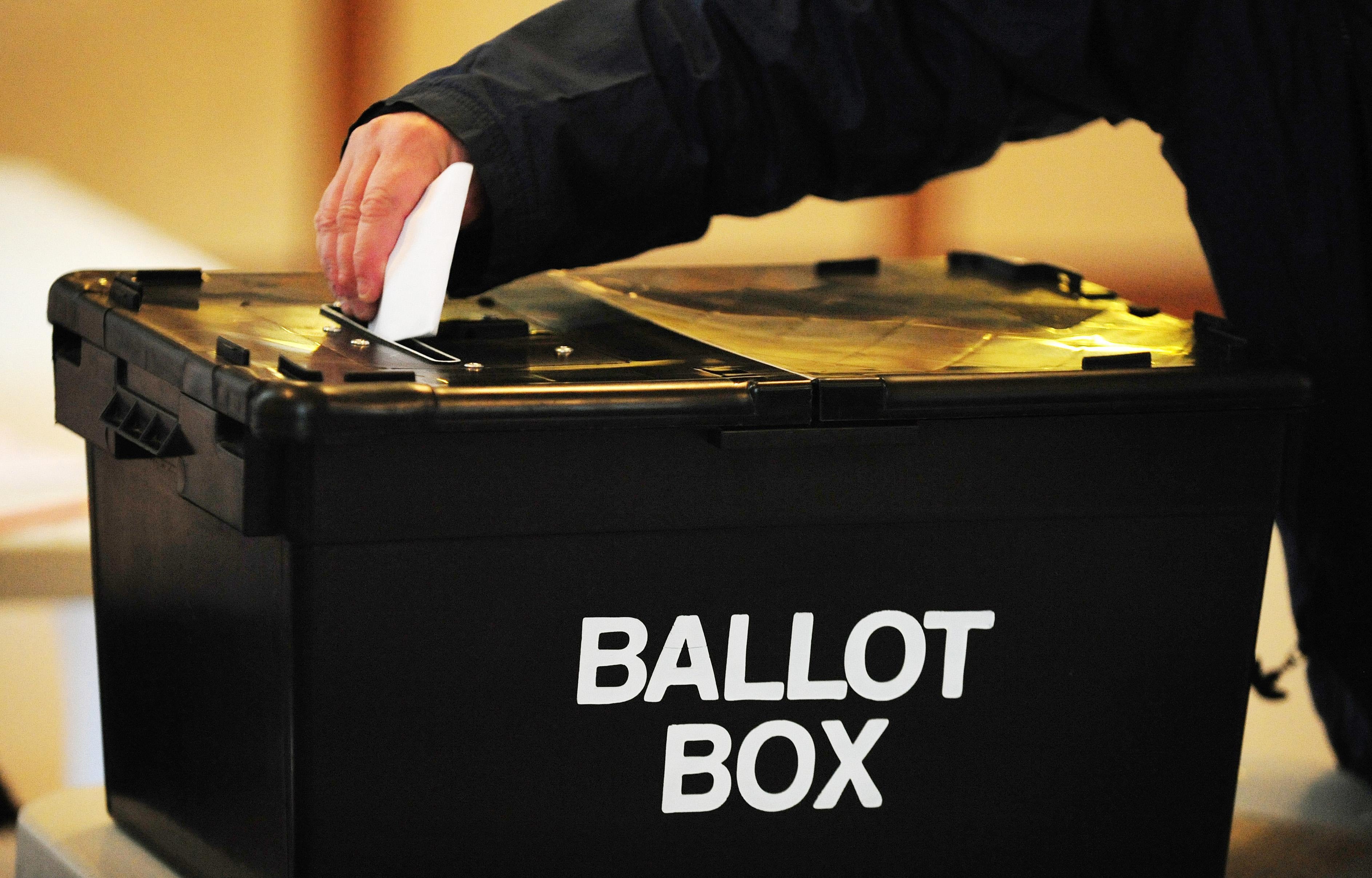Split vote threat to left in Thursday’s elections as ‘progressives’ outnumber conservatives by two to one
Tories are the sole right-of-centre party facing three ‘progressive’ choices in more than four out of 10 contests in England

Candidates from left-of-centre parties will outnumber those on the right by more than two to one in this week’s local elections in England, creating an inbuilt advantage for the Conservative Party, new research has shown.
In almost half (43 per cent) of wards being contested, the Conservatives are the sole right-of-centre party against three contenders from the left of centre – Labour, Liberal Democrats and Greens – effectively splitting the “progressive” vote in a way that makes it easier for Boris Johnson’s party to win.
And in another third (36 per cent) of battles, the Tories are the sole “conservative” representative fighting candidates from two “progressive” parties. Out of almost 3,000 council seats up for grabs, only 15 (0.5 per cent) will see more conservative than progressive parties on the ballot paper.
The research, by trade union campaign Politics for the Many, emerged a day after Tory chair Oliver Dowden accused Labour and the Liberal Democrats of engaging in a secret pact – denied by both Sir Keir Starmer and Ed Davey – to help each other out in Thursday’s elections.
Pointing to statistics suggesting that Labour was standing fewer candidates than usual in the southwest of England, and the Lib Dems fewer in the northeast, Mr Dowden claimed the parties were conspiring to “deny the voters a proper democratic choice”.
Politics for the Many said its analysis, using data collated by Democracy Club, showed that England’s winner-takes-all voting system means voters on the left are in effect being punished for having a choice of parties to vote for, whereas voters on the right see their chances of success boosted by there being fewer candidates to choose from.
Campaign coordinator Nancy Platts said it meant many voters from the left of the political spectrum had to “hold their noses” and vote for a party they did not support in order to pursue the priority of preventing a Tory victory.
“We’ve seen all too many times how our voting system serves as a barrier to progressive change, amplifying the votes of some while casting others on the scrap heap,” said Ms Platts. “The result – a winner-takes-all system that gifts unearned majorities to the government of the day... governments that are all too often conservative.
“It’s a system that forces voters to vote tactically, often supporting the ‘least worst’ candidate in order to try and game the broken system. In these local elections, the odds are once again stacked against progressives, and the results will likely reflect that in seats up and down the country.
“Labour must get serious about electoral reform to overcome the structural advantage our electoral system gives the Conservatives. Only then can progressive views be given a fair chance at the ballot box.”
The campaign’s analysis found that, across all 2,859 wards being contested, there were an average of 2.2 Labour, Lib Dem or Green candidates standing for every Conservative, Reform UK or Ukip candidate.
Some 43.3 per cent of wards will see one party from the right facing three from the left, while 35.5 per cent will see one from the right against two from the left. In a further 2.4 per cent of wards, two right-of-centre parties will face three “progressives”.
No wards were found in which all three right-of-centre parties were standing, and only 15 will be contested by more parties on the right than on the left. In only 16.1 per cent of wards were equal numbers of parties from each side standing.
Proportional voting systems, such as those used in Scottish and Northern Irish local elections and parliamentary elections in Scotland and Wales, allow voters to number candidates in order of preference, eliminating the problem of “split votes”.
Most council ballots in England use a straight first-past-the-post system, while in some areas residents have as many as three votes but no means of ranking candidates by preference. Major parties in these areas tend to run three candidates in the hope of scooping all three Xs.
Boris Johnson’s triumph in the 2019 general election was hugely assisted by Nigel Farage’s decision to stand down Brexit Party candidates to avoid splitting the right-of-centre vote, allowing Tories to claim a landslide victory to “get Brexit done” in an election that saw a majority vote for parties offering a second referendum.
Join our commenting forum
Join thought-provoking conversations, follow other Independent readers and see their replies
Comments
Bookmark popover
Removed from bookmarks